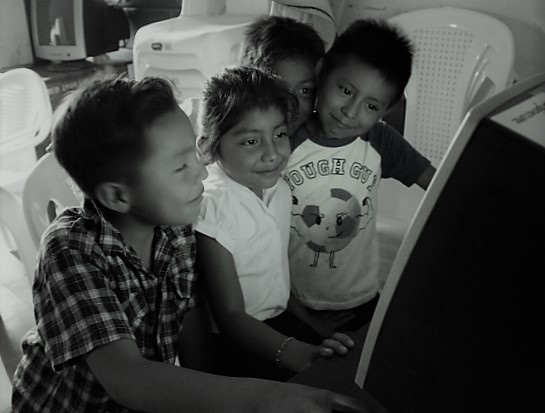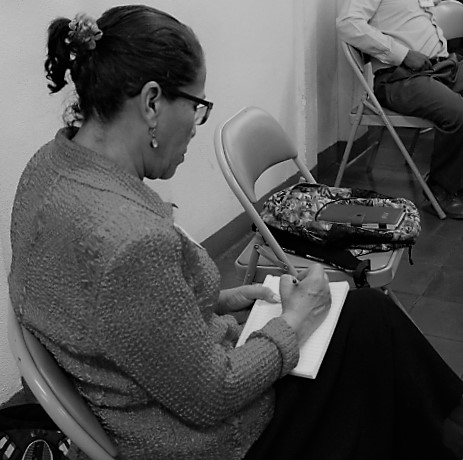A Letter from Jhan Dotel-Vellenga and Ian Vellenga, serving in Nicaragua
Spring 2021
Write to Ian Vellenga
Write to Jhanderys Dotel-Vellenga
Individuals: Give online to E200391 for Ian and Jhanderys Dotel-Vellenga’s sending and support
Congregations: Give to D507593 for Ian and Jhanderys Dotel-Vellenga’s sending and support
Churches are asked to send donations through your congregation’s normal receiving site (this is usually your presbytery).
Subscribe to our co-worker letters
Dear friends,
I don’t know about you, but I am not a computer whiz. I am frequently unable to follow up with all the updates for all my electronic devices and programs. Every so often, several of my programs and my computer ask me to update my personal information and change passwords, either because they have expired, there were new security requirements, or some upgrade to the program.
In the past, I had deliberately refused to do many of these updates because I was satisfied with the original version: learning to manage new programs is something I dread. And let’s face it, many of us don’t really like change. Some of the programs will let you get away with avoiding an update for a while, but eventually, the original version becomes obsolete, and things don’t work the way they are supposed to or the way they used to. Then a new program is needed.
For many, and especially us and our partners, 2020 has been the “update” year, the year in which everyone had to adapt to new situations and realities. Of course, COVID-19 is the most obvious thing that has affected everyone in some way around the world. As we adapted to our new situation, we learned new terms like “social distancing” and “essential workers,” to name a few. We could no longer attend large social gatherings like church, rock concerts, or sporting events, and when we had to go out of the house, we always made sure we wore a mask. Luckily through technology, we can still maintain some normality. We can meet via Zoom instead of in person. We can attend church services through Facebook Live. We all have had to adapt, and in these cases, most of us look forward to the day when we can return to the way we did things before the pandemic.
Our partner, CEPAD, also had to deal with COVID, but in different ways. Because of travel restrictions, they haven’t been able to receive any Presbyterian groups but have adapted to the new ways of communicating (i.e., Zoom) the best they could. Their focus, however, has been handing out health kits (soap, masks, hand sanitizer, etc.) to the rural communities they serve to help stop the spread of COVID. In November 2020, unfortunately, they also had to adapt to mitigate the damage from hurricanes Eta and Iota. When they sent affected communities the health kits, they added seeds (to replace lost crops), food, and building materials. They, too, look forward to the time after the pandemic when they can meet with Presbyterian groups again and realize that things may never return to the way they were before the hurricanes impacted those communities.Like many people in the United States, we spend most of our time at home in North Carolina working via the internet. As you may know, we were called back in March from Nicaragua to the U.S. because of COVID, and we’ve had the same experiences as those in the U.S.
In 2020, we welcomed our daughter, Marcella, into the world; and have joyfully adapted. We can’t just put on a pair of pants and a shirt (and a mask!) and head out to the supermarket on a whim anymore. We have to pack diapers, wipes, and a bottle if we go anywhere. Sleeping in on the weekends (or any day, to be honest) is no longer an option, nor is an uninterrupted full night’s sleep. We miss those things but wouldn’t change them for anything in the world. Marcella is the best thing that has happened in our lives, and the adaptations that we have made because of her are happily and blissfully made.
Our work with CEPAD in Nicaragua involves receiving churches and individuals. We had to put that part of our job on hold since the borders were closed and flying was restricted. We have no choice but to shift from physical to virtual online interactions. We had to update, not only for safety reasons but also because we understand how important it is to connect with our supporters and partners. Some changes were easy. But some of the changes for CEPAD were unforeseen and difficult, like helping communities with hurricane damage. We are all learning how to use resources and virtual communication better to continue doing our work of connecting churches and individuals with CEPAD’s activities and the people of Nicaragua. These are updates that I didn’t anticipate but have learned to welcome and appreciate because they allow us to do what needs to be done.
As the saying goes, the only constant in the universe is change. Although I’m not an expert, I am relatively proficient at Zoom, or at least I can get by. Being a new parent and going from fieldwork to working mainly online was without a doubt a challenge. For better or worse, CEPAD, our churches, and our communities have all had to “update” to accommodate these new changes. Sometimes we have “updated” just to get by and hope that things will return to what they used to be. Other times we have “updated” because of the promise of a better future. Still other times we have “updated” with joy, and usually, with a little bit of anxiety. Sometimes the updates are simple; other times, they take more effort and time. But eventually, we all have to face them.
Jhan and Ian
![]() You may freely reuse and distribute this article in its entirety for non-commercial purposes in any medium. Please include author attribution, photography credits, and a link to the original article. This work is licensed under a Creative Commons Attribution-NonCommercial-NoDeratives 4.0 International License.
You may freely reuse and distribute this article in its entirety for non-commercial purposes in any medium. Please include author attribution, photography credits, and a link to the original article. This work is licensed under a Creative Commons Attribution-NonCommercial-NoDeratives 4.0 International License.

